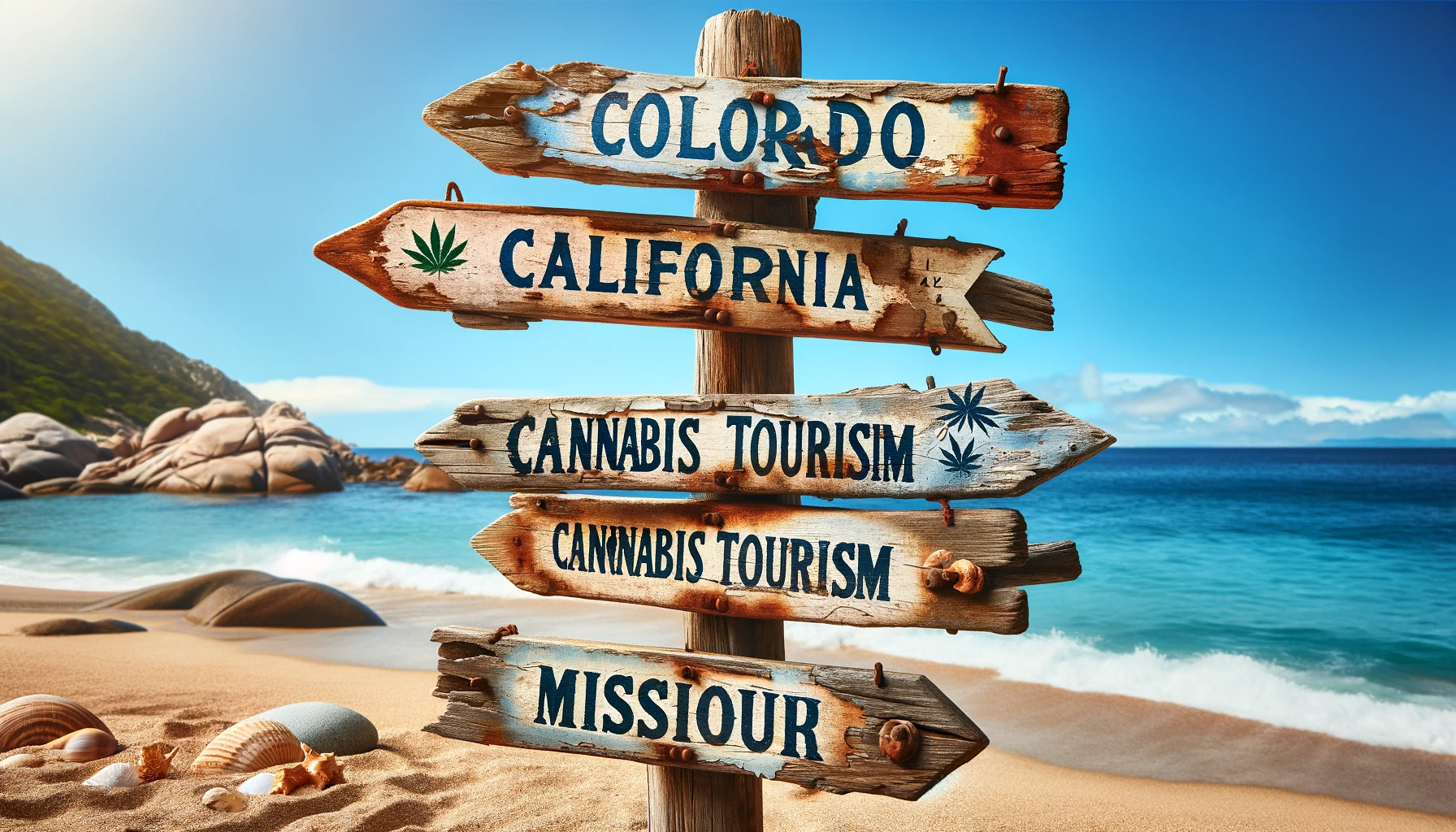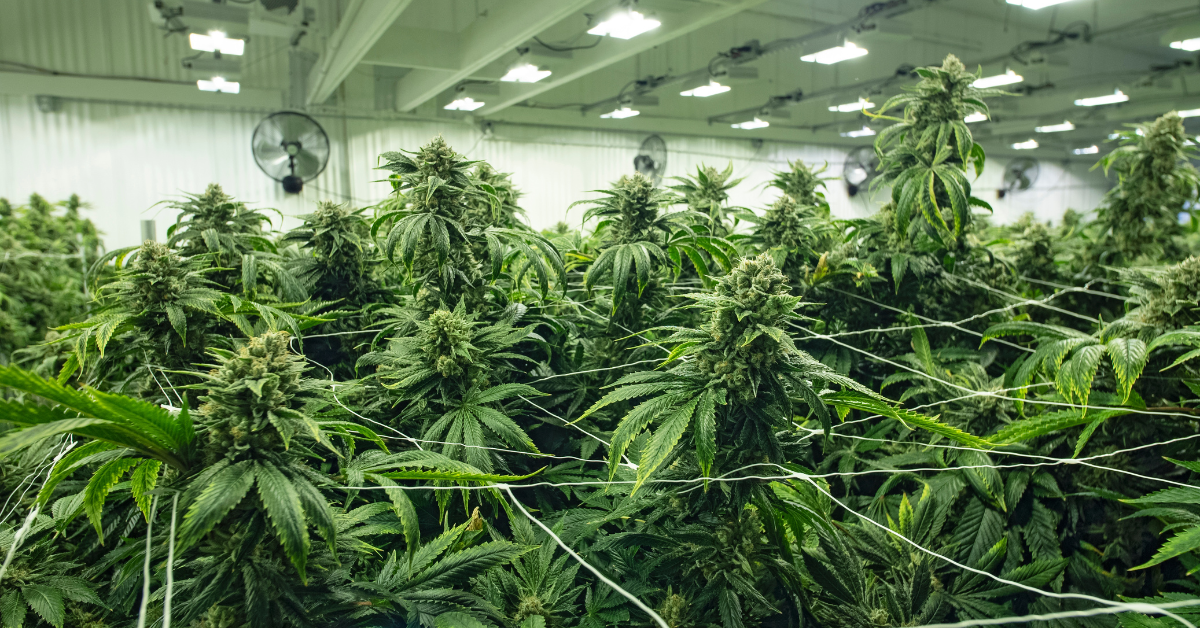The cannabis tourism landscape in the United States has seen significant developments in recent years, with a growing number of states legalizing recreational marijuana use. This shift has led toa growth in cannabis tourism – where you, the enthusiast, gets to seek out cannabis-oriented experiences, educational seminars, and recreational tours in a state of your choice.
Cannabis tourism is likened to wine tourism, where participants indulge in weed use in jurisdictions that permit it, often combining their interest with various leisure activities.

Making Money Honey!
In 2022, cannabis vacations generated about $17 billion, reflecting the rapid legalization drive in many states. This growing sector has led to a demand for 420-friendly accommodations, events, and tours.
As of 2023, 21 states, along with Guam, the District of Columbia, and the Northern Mariana Islands have legalized recreational weed, further expanding the potential for marijuana tourism.
Expanding Cannabis Activities
The variety of experiences offered ranges from growers visiting commercial-grade cultivation setups to enthusiasts trying different region-specific smoking paraphernalia and consumption methods.
Unique to cannabis tourism are offerings such as farm stays, where travelers enjoy a serene environment and engage in activities like horseback riding and fishing, often combined with cannabis use.
Bud and Breakfast establishments cater to those seeking a safe space to enjoy marijuana as part of their lifestyle. These facilities offer more than just accommodation; they often include fully stocked bud bars, CBD massages, yoga, cooking classes, and even zip-lining over marijuana farms.

The hospitality sector in legalized states is advised to adapt their policies to attract cannabis-oriented clientele. This includes allowing guests to consume weed in their rooms or on premises, and providing amenities like marijuana-infused spa treatments and facials. Dispensaries play a crucial role too, where budtenders educate customers on the herb and recommend recreational activities in the local area.
Missouri is a Contender for the Crown
In Missouri, the recreational marijuana sector has emerged as an economic catalyst, particularly in the tourism industry. The state’s cannabis industry has seen robust growth, with recreational sales hitting a peak in September 2023 and surpassing $1 billion in annual sales. Missouri’s diverse landscape and rich cultural heritage make it an ideal destination for cannabis tourism.
The introduction of marijuana microbusiness licenses, focusing on small-batch, high-quality craft cannabis, is expected to attract a niche segment of tourists. Missouri’s balanced approach between taxation and regulation positions it uniquely for upward growth in the cannabis industry, making it a viable destination for cannabis tourism.
California: No More Judging from Employers
California, known for having the largest legal cannabis market globally, continues to thrive in the cannabis scene. In 2023, the state has a wide variety of weed strains available, with a particular preference for flowers as the preferred form of consumption.

The state also has easy access to a wide range of cannabis topicals. A notable legislative development in California is the introduction of AB 2188, which, effective January 1, 2024, will protect employees from discrimination based on off-the-job cannabis use. The medical marijuana companies in California generate substantial revenue, reflecting the thriving nature of the industry in the state.
Colorado: Still Leading the Pack and Wanting More
In Colorado, cannabis tourism has significantly boosted the local economy, with an influx of tourists seeking to indulge in legal marijuana consumption.
This has resulted in increased tax revenues, job creation, and the growth of ancillary businesses such as hotels, restaurants, and transportation services. However, there are concerns about public health and safety, including the potential rise in addiction rates and the impact on youth consumption.
The state has seen a surge in the tourism industry due to cannabis legalization, with dispensaries popping up across the state and attracting both locals and tourists. Hotels and restaurants have adapted to this new market by offering cannabis-friendly amenities.

Despite the economic benefits, it’s crucial to balance promoting the industry while addressing potential risks associated with its use.
So to wrap this up, cannabis tourism in the United States is a burgeoning industry that’s reshaping the way people travel. With states like Missouri, California, and Colorado leading the way, it’s clear that this isn’t just a fad but a significant economic and cultural movement.
From farm stays and “Bud and Breakfasts” to cannabis tours and events, the variety of experiences caters to a wide range of interests. As legalization spreads, more states are joining the scene, each bringing their unique flavor to this green wave of tourism. It’s an exciting time for cannabis enthusiasts and the travel industry alike, as this trend continues to grow and evolve.
